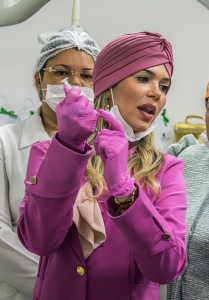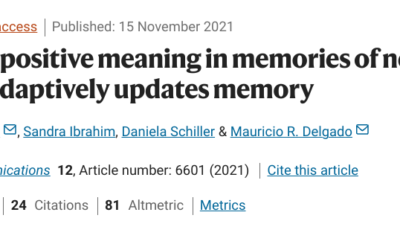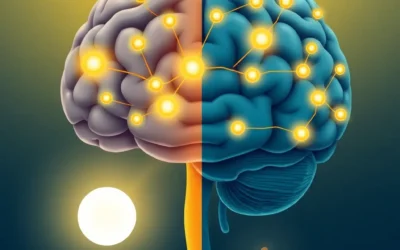A portion of people are absolutely terrified of the dentist. A challenge with a dental phobia is not just having that extra bit of stress in your life but it can also cause you to lack proper dental hygiene.
It's not like fear of heights or elevators where you can easily work around it by taking stairs and avoiding high places without horribly cramping your life. Unfortunately the same can't be said for a fear of dentists. By avoiding the dentist it's not going to be the best strategy for oral health.
What can you do if you're afraid of the dentist or even worse, what if you and your child are both afraid of visiting the dentist?
This situation came up with a client who was getting a divorce. Her ex husband was scared to visit the dentist and due to years of neglect he consequently developed bad teeth and growing anxiety. Whatever, it's his life, his teeth, he can do what he wants. However, they had a child who needed to see the dentist.
The challenge was that the child was scared because the dad was scared. So I did a coaching call with the dad about his dentist phobia.
The first twenty minutes of the call was the usual rapport building. The point of rapport building is to get the client in a relaxed state so that the neurochemicals of stress aren't active. After some light chat, we spoke about his history and he said that he had a bad experience with a dentist when he was a teen and he's been scared ever since. He probably got PTSD from that dental experience. Since memories can be updated through a natural process in the brain (memory reconsolidation), we decided to do a strategy that would cause his memories regarding dentists to become updated to a more innocuous version.
Reconsolidation has two criteria, namely a brief elicitation of the problem state and a prediction error.
So he spoke for a few minutes about how he feels about dentists and how the idea of going fills him with anxiety. With the neurochemicals active that are representative of that memory, we were ready to begin working on it. While he described his dentist phobia for a few minutes, I would interrupt him to eliminate the possibility of a full blown threat response. Also, because we are looking to change the memory, all we need is a brief reminder. Once we had that going in, we could get to the next step which is creating prediction errors.
I asked him if his dentist was an attractive woman that wears fuschia and if she has a dentist office in a log cabin with a fireplace, bear skin rug, and smelled of hot chocolate. 
He emphatically replied 'NOOOO!'
Here comes the spanner in the works. I then asked him, if the dentist office was like a log cabin ski chalet, with chestnuts roasting in the fireplace would it would still give him anxiety?
 For him to answer the question, he has to try it on. By that I mean he has to imagine being in a dentist office that is warm, safe and nurturing. This bizarre idea was a total violation of his expectations and that's exactly what we need. We want to force this prediction error and create a juxtaposition experience to reconsolidate the memory.
For him to answer the question, he has to try it on. By that I mean he has to imagine being in a dentist office that is warm, safe and nurturing. This bizarre idea was a total violation of his expectations and that's exactly what we need. We want to force this prediction error and create a juxtaposition experience to reconsolidate the memory.
So in that brief moment, he had thought of the dentist, felt some stress and then he imagined it as a romantic log cabin to experience how it would feel. For just a few seconds he thought of the dentist and imagined feeling calm, relaxed and nurtured. That is a far cry from how he usually represented the idea of dentists in the past.
After a few more iterations of him describing his scary version of the dentist while I continually interrupted with bizarre misunderstandings, his idea of dentists began to get bent out of shape. His concept of dentists had been blown apart due to the continual attack of the boundary conditions on that state of being. He couldn't think of a dentist as being scary anymore because that notion had been contaminated with images of rugs, moose antlers, rocking chairs, Christmas trees, and the smell of hot chocolate with marshmallows, all of which have little to do with dentistry which makes these ideas fantastic for creating a mismatch experience. These peculiar interruptions were bizarre and novel enough to engage the building of new proteins to restructure the memory. If the mismatches were bland and lacking in sufficient believability then there wouldn't have been protein synthesis which is mandatory for reconsolidating memories. Since novelty awakens this process and these weird ideas were outside the predictive net of expectations, his brain generated new proteins.
With reconsolidating memories, the brain is presented with mutually incompatible information and has to decide if the old version of the memory is true or the new version. Since the overwhelming majority of people can have a dental procedure and survive, it wasn't too difficult to show how dentists aren't a threat to mortality. All that was required was to have the client give his brain new safe information that could be grafted into the old memory. After 5-6 hours, which is the length of time when the memory reconsolidation window is open for updating, his concept of dentists had become neutralized and he was able think of going to the dentist and feel at ease with it. His memory regarding dentists had become modified to a healthier, more realistic version.
A week later he went to the dentist, got his teeth fixed after a couple visits and found the entire process easier than he expected. Once the dad had his teeth fixed, it didn't take much convincing for him to bring his daughter in for a dental appointment.
Who would have thought that changing your mind can be good for your teeth and your kids?
Experience personalized dental care that's approachable, convenient, and focused on you. Search For A Dentist Now Only At Opencare.com!



















